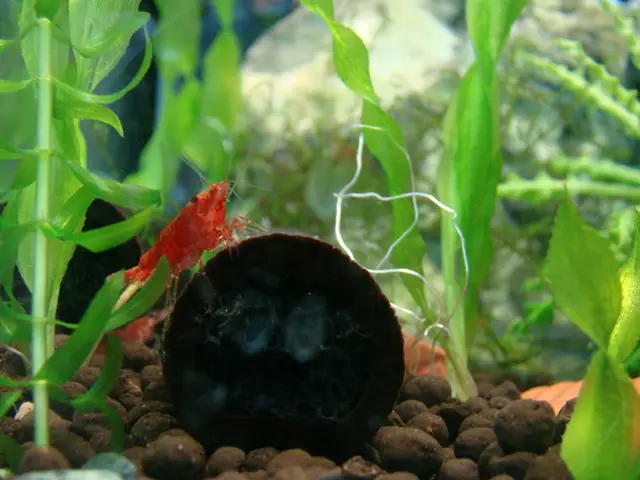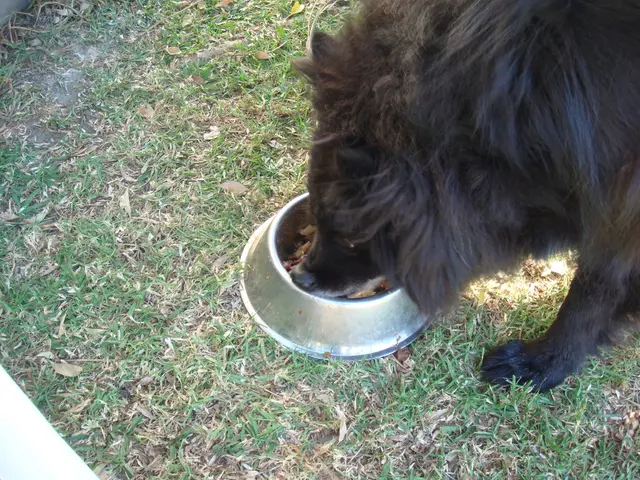Efficient water usage in irrigation and production of organic grapes leading to wine, by Zapfhahn.
Sustainable Winegrowing in Germany: AI and Eco-Wine Strategies
Osnabrück, Germany - Amidst the unfolding climate crisis, wine growing in Germany, a cultural treasure and significant economic factor, is confronting growing challenges. The German Federal Environmental Foundation (DBU) is addressing this issue by funding projects aimed at enhancing the climate resilience of viticulture regions. These initiatives encompass water-saving irrigation systems and the production of eco-friendly wine.
The viniculture sector in Germany spans approximately 103,000 hectares, yielding around 7.8 million hectoliters of wine must annually, according to the Federal Ministry of Agriculture, Food, and Homeland. With over €3.08 billion in turnover in 2023, as reported by Statista, it is essential to equip winegrowing businesses with sustainable innovations to tackle the near future.
Alexander Bonde, General Secretary of the DBU, underscores the urgency: "The wine industry, with its cultural and economic importance in Germany, is under threat from the climate crisis. Increasing extreme weather, including droughts and heavy rainfall, is adversely impacting viticulture." As a result, it is crucial to provide winegrowing businesses with sustainable solutions for the challenges ahead.
One such project, backed by the DBU and around €400,000, involves Fluid Systems & Automation GmbH (FSA) in Sasbach, Baden-Württemberg; the Institute for Machine Learning and Analytics (IMLA) at Offenburg University; and the Service Centre for Rural Areas (DLR) Rheinpfalz in Neustadt. Collaboratively, they are developing a more efficient irrigation system leveraging artificial intelligence (AI). Matthias Krügel, FSA Managing Director, explains, "The solution consists primarily of drip irrigation, with hoses placed directly on the plants to ensure precise irrigation." However, this project aims to take it a step further, utilizing decentralized, battery-operated sensors that monitor soil moisture, plant condition, depth, weather forecasts, and more. Data fed into the AI is expected to become increasingly accurate throughout the project.
According to Krügel, the AI optimizes and automates irrigation, yielding water savings of at least 30 percent once fully developed. Moreover, by targeting water supply at the right time, wine quality can be improved. Additionally, the team plans to develop automated monitoring and control of fertilizer supply, further conserving resources and improving wine quantity and quality. Krügel emphasizes, "Our goal is to offer sustainable advances for winegrowers."
Another aspect of resource protection is the DBU-supported startup, Ebb & Flow Keg GmbH, based in Frankfurt am Main. The startup delivers wine in reusable stainless-steel kegs to the gastronomy and catering industry, addressing waste avoidance and the climate impact of single-use glass bottles. Ebb & Flow CEO Philipp Neveling explains, "The predominant wine packaging in Germany is single-use glass bottles, contributing 40 to 60 percent of the total CO2 emissions in wine production." The tapping of wine from reusable stainless-steel kegs offers the Gasparde advantages, such as avoiding the energy-intensive glass production and recycling processes.
Historically, draft beer is well-established and often preferred in Germany. However, Neveling finds the reservations about wine on tap unnecessary: "There is practically no difference in wine between bottles and stainless-steel kegs, and storing and cooling kegs is more practical for businesses." Neveling adds that his company primarily uses organically grown German wine and has notable clients like football club Union Berlin and Messe Frankfurt.
In summary, the DBU's AI-driven projects enable winegrowers in Germany to optimize water usage through resource-saving irrigation methods, contributing to sustainable viticulture. Reusable stainless-steel kegs offered by Ebb & Flow Keg GmbH represent a sound approach to resource protection in the wine industry, addressing waste concerns and climate-damaging single-use bottles.
- The climate crisis presents challenges to wine growing in Germany, a crucial part of the country's cultural heritage and economy.
- The German Federal Environmental Foundation (DBU) is funding projects to enhance climate resilience in viticulture regions, including the production of eco-friendly wine.
- The viniculture sector in Germany, spanning over 103,000 hectares, needs sustainable innovations to manage future challenges.
- Alexander Bonde, General Secretary of the DBU, emphasized the threat of climate change to the German wine industry.
- A DBU-backed project involves three entities developing a more efficient irrigation system using artificial intelligence (AI).
- The AI-optimized irrigation system, developed by Fluid Systems & Automation GmbH,IMLA, and DLR Rheinpfalz, aims to save at least 30% of water and improve wine quality.
- Ebb & Flow Keg GmbH, a DBU-supported startup, delivers wine in reusable stainless-steel kegs, reducing waste and the climate impact of single-use glass bottles.
- Single-use glass bottles contribute 40 to 60 percent of total CO2 emissions in wine production, according to Ebb & Flow CEO Philipp Neveling.
- Neveling finds reservations about wine on tap unnecessary, citing practical benefits for businesses and no difference in wine quality between kegs and bottles.
- Wine delivered in reusable kegs offers advantages like avoiding energy-intensive glass production and recycling processes.
- Companies like Union Berlin and Messe Frankfurt are notable clients of Ebb & Flow, using organically grown German wine in their businesses.








